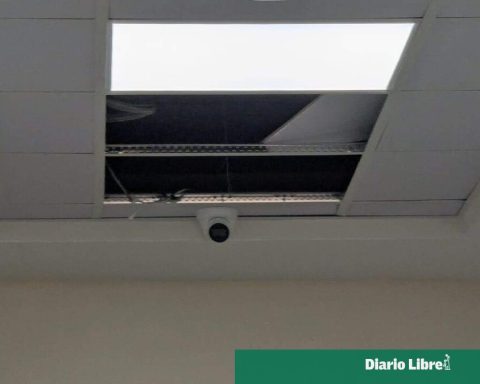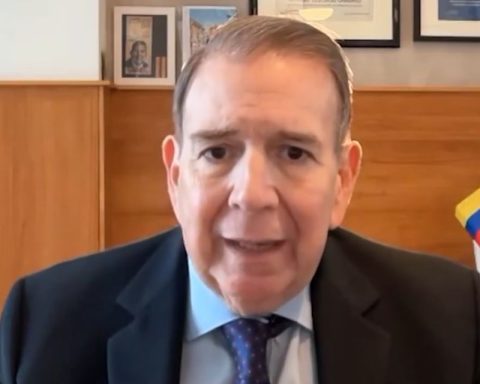Number one is that maybe you have to make a change of direction and that is a great message. When you are in that moment of stagnation, the only thing life is telling you is that you have to make a turn. And number two, the most important thing is attitude. There are many people who start ventures and leave them precisely at the moment when you least have to leave them.
That’s like when you’re already running, because that last mile is the hardest. Well, when you go beyond that, that’s when you really find yourself on the other side. So I encourage all the people who are in that moment right now, really, to keep going.
And I would like to recommend a book that helped me a lot in those moments, which is a book called ‘Mastery’, by Robert Greene. And really what that book explains is how other entrepreneurs before us, throughout history, if they had not spent ten thousand hours of work trying something, they did not give up. And when I read that book I said, look, I haven’t spent ten thousand hours, so I still have a little bit left. So I would tell them to keep going and don’t give up.
_ How has your consultancy managed to help Hispanic or Latin companies become international players in a market as competitive as the United States?
Well, the United States market is competitive, but it is true that it is full of opportunities. There are 300 million people, that means 300 million opportunities. You can see things from a point of view where everything is difficulty, or you can see things where everything is advantages and opportunities. If you only have 1% of that market, imagine what your numbers are. So I always look at those opportunities.
Yes, it is true that you have to work a lot. I think that to enter the American market you have to work between three and five years. Many people give up early and you have to make business plans that are truly always alive. We live in a super uncertain world, where also, due to everything that is happening in this digital age, things change very quickly.
_We saw it too quickly with the pandemic, right?
Exact. How it forced us to be so technological. To change everything. Work from home. All the tools we had to learn, on the fly.
Look, there were a lot of people who simply thought that we had to go to the market to do business and that if you didn’t sit in the same room with someone you couldn’t do business. And the pandemic showed us that no, it can also be done by Zoom. We change our ways a lot.
And that means being really used to change. This requires a lot of resilience, flexibility and adaptability. And then I think that an entrepreneur has to be a polymath. Be constantly learning. And that’s what I think has been the secret of our success in the United States. That we have also encouraged people to change their mentality.
You can have a great product, but if you don’t think like a winner it is very difficult to gain a foothold in that market. But honestly it is possible.
_And in your experience, what is the biggest barrier that women entrepreneurs face today in achieving the expansion of their business?
Well look, I would say that they are the same barriers that I have faced. And it’s the limits of my mind and imposter syndrome. Many women procrastinate because we think we are not prepared enough. And I think that makes us procrastinate.
And it means that many times we don’t push ourselves.
And I believe that that is one of the first beliefs that women have to face. It is removing the limiting belief that we must have everything prepared. I have to have enough money. I have to have enough knowledge, enough staff. So I’m really focusing on all the whys I shouldn’t be entrepreneurship instead of the whys I should. And you can never really be prepared enough.
You have to go and do it little by little and learn, fall. And it is true that biases still exist. It is true that we still have many barriers that are in people’s minds. But I believe that only we can change them. And above all, we have to do it by creating community. Creating a circle and encouraging each other. So, I think that conferences, all women’s circles, having mentors is very important. Do masterminds. I believe that they are the tools that have helped me.
_You mention in your book ‘We all have a story to tell’ that entrepreneurship gives you the freedom to manage your time. How do you find the balance between personal and professional life in an area as demanding as the development of your New York company?
You have to be very clear about your scale of values. And for me, family first. So for me family comes first, family and friends. I didn’t always have those values. At the beginning of my career I thought the most important thing was work. And I dedicated a lot of work to growing professionally. But when I fell, I discovered that the most important thing in life we have – when we fall – is the family and friends who have been with us from the beginning.
And you have to take care of them. So now I do think that balance is very important. And then also for having that well-being. Because I think that many times we reach burnout situations. We burn. We are in stress, with anxiety.
And we forget that we are here to enjoy life. So I think that balance is important. Making it very clear to us what the goals are that you want to achieve. But also how you have to take care of yourself. If you don’t take care of yourself, you don’t take care of your family, your environment. And if you don’t have well-being, you can’t give it to others.
And the entrepreneur in the end, what does he want? Change the world, make it better. For their products, for their services, in any way. Then it has to start with you.
_Just when you talked about the fall, you mentioned that after your dismissal in the Hispanic Chamber you were able to reflect on arrogance and success. How does this self-criticism influence your current attitude?
Well, I believe that sometimes success has a great enemy. And the enemy is arrogance. Because sometimes someone in their company may have done very well or executively they have risen a lot in the company and have obtained positions of responsibility. But you are not the position, you are not your job. And sometimes you forget that and your head goes up like a champagne bottle, boom! And then it explodes somewhere.
And I think that in the end I have realized that one of the essences of leadership to be a good leader and to really lead our lives and other people is the three ‘H’s. Humanity, humor and humility. You have to have a sense of humor because the road is difficult and if you don’t laugh at yourself, in the end it will be difficult.
Always put human beings above all else because we are here to serve people. And then that humility. Knowing that you have to touch down and that, well, all the people around you are as important as you. And I think that when you have that clear, your business vision changes a lot as well.
_ Humility also helps to give a more authentic message.
Completely. I believe that truth and transparency, that we are in an era of transparency because now we are seeing how everything is coming to light and really, who do we like to do business with? With people. And we want real and authentic people, people of flesh and blood. And that’s how I like to do business. Flesh and blood business.
And being in the business of doing good, which is the best business in the world.
_As a female entrepreneur, what real changes have you seen in the business environment in terms of inclusion and diversity? And what can you advise, to large companies?
I believe we have come an incredible path, but I know we have a long way to go. But I think it is very important to celebrate what we have already traveled. You just have to look back at our mothers. Which is not that long.
Where were these generations and where are we now? And where are the new generations going to be? I believe that we have shown that female leadership is a leadership that adds value. It is leadership that creates more economic engine and growth for companies. It is also an engine for innovation.
Therefore, this talent is at the service of companies. And I think that large companies, many of them, have already understood that message and we have realized the richness of diversity. But I think it’s important to understand the difference between diversity and inclusion.
Diversity is being invited to the party. Inclusion is that they ask you to dance and you don’t want to leave the party. So, there are times when people think that diversity is mixing different people together. No, it’s that all voices count. And there I think that is the next step. Many companies are integrating diversity, but they are not exercising inclusion.
And to exercise inclusion, you need the company culture. Keep that in mind.
_Let it not be just a slogan…
Yes, let it be a reality and let it be in the DNA of the company.
_Talks about leadership from empathy and collaboration. How can this approach be a competitive advantage in the current global economic environment?
Well, I think it is very important because right now we not only need to have a very good relationship with clients, but also a good relationship with internal clients and with our ambassadors, who are the people who are our collaborators within. So, when you add the culture of empathy and collaboration as ingredients, you are being that humanistic leader, that transformative leader that companies need.
Because if the company’s values are not aligned with the values of the people who work for it, it will not reach the end customer. Therefore, I think it is very important. For that you have to use empathy, know how the shoes of the other people around you walk.
And even if you put on those shoes, you won’t know until you walk in them if they are really tight or too big for you. That’s what empathy really is. And then collaboration versus competition.
We came from a world where everything was competitive and I think now we are in that culture of collaboration. And I think that is something that in this century is where we are going to need it, because in the digital era is where you can really digitize a company with money. But to have leadership you need humanism. And that’s what’s going to take you forward.
_ Your Bisila Bokoko Africa project has a notable impact on literacy in Africa. How do you integrate business and philanthropy principles to effect sustainable social change?
Well, I have always considered myself a social entrepreneur and I have thought that the best business in the world is doing good. And I think sometimes it’s a contradiction between wanting to have money or make money. Companies want to make money. That’s how it is. Money is wonderful. And you can also do many things with that money.
So, I believe that an entrepreneur also has that freedom to help others. And what we do is that a percentage of the company goes to create libraries. There have already been years in which I have not been able to because the benefits have not been enough for that. But hey, I have packed books in my suitcase and taken them to Africa and something can be done.
And with that you change the life of a single person. I have met wonderful people. A boy who had the dream of being a pilot when I met him when he was nine years old. Now he is 23 and today he is a pilot.
And I believe that a book can change a person’s life. With a book you are never alone. And I think that many times not everyone has access to going to a university or being able to have that education that some of us have been lucky enough to have. But everyone can read a book.
_And do you consider that we are living in a time when it is the time of the woman?
Absolutely. I am so sure that the 21st century has the sign of a woman. I see it like this. And get ready because we women really have a lot to contribute.
But it’s not just going to be good for us, it’s good for all of humanity. And I believe that we are going to reach a much more egalitarian system where there is much more for everyone. Because women can bring an ethical sense. And I think that’s important.
















